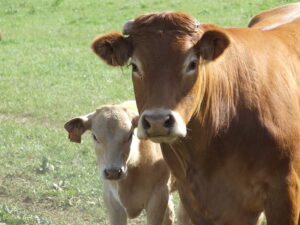Dairy cow watering
The requirements for watering dairy cows are important for ensuring both the well-being of the cows and the quality and quantity of milk production. Below is a brief summary of the main requirements for watering dairy cows:
Requirements for watering dairy cows:
1. Water quality: Dairy cows need clean and uncontaminated water. Water quality directly affects their health and milk production. Contaminated water can cause diseases.
2. Water quantity: A dairy cow can consume between 40 and 150 liters of water per day, depending on diet, productivity, weather conditions, and stage of lactation. Water demand increases with higher milk production and in hot weather.
3. Accessibility of watering points: Cows should have access to water 24/7, especially after milking. A sufficient number of watering points should be provided to avoid competition and ensure that all cows get enough water. The minimum requirement is 10 cm of free water surface per milking cow.
4. Water temperature: Although cows can tolerate a range of water temperatures, they prefer moderate temperatures. Extreme temperatures can affect their drinking behavior.
5. Regular inspection: Watering systems must be checked regularly for blockages and leaks. In addition, water should be tested regularly for quality and contamination.
6. Feed and water balance: The relationship between feed and water is important. When cows receive more salty or protein-rich feed, their water intake increases.
In conclusion, it is important to understand that proper watering of dairy cows is critical to ensuring their health, welfare, and productivity. Therefore, farmers and cattle breeders should be aware of best watering practices and ensure that cows always have access to a sufficient amount of high-quality water.




